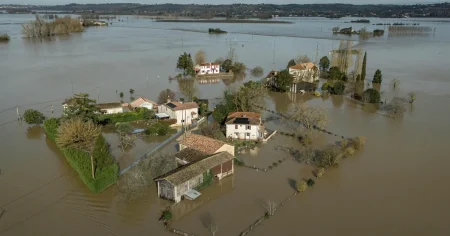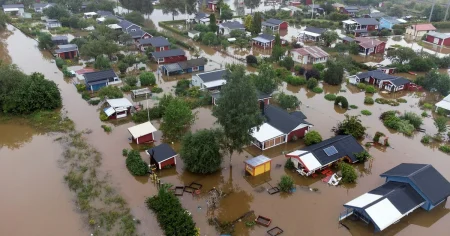The impact of Swedish greenhouse gas emissions on global food security is a stark and alarming reality, according to a report by Oxfam. The organization estimates that over a quarter of a million more people annually could have had enough to eat if Sweden had not emitted greenhouse gases over the past 33 years. This staggering figure underscores the profound interconnectedness between climate change, driven largely by human activities like greenhouse gas emissions, and the increasing precarity of food systems worldwide. As climate change intensifies, its detrimental effects on agriculture and food production become increasingly evident, leading to reduced crop yields, disruptions to supply chains, and increased food insecurity, particularly in vulnerable regions already grappling with poverty and limited resources. The report highlights the urgency of Sweden, and the global community at large, taking decisive action to mitigate climate change and address its devastating consequences on food security for millions.
The report’s findings paint a grim picture of the human cost of climate inaction. The quarter of a million people represent real individuals, families, and communities deprived of their basic right to food due to the consequences of emissions which originated in Sweden. This emphasizes the ethical dimension of climate change, highlighting how the actions of one country can have far-reaching consequences across the globe, disproportionately impacting those least responsible for the problem. The report emphasizes the shared responsibility of developed nations, like Sweden, to significantly reduce their emissions and support developing countries in adapting to the unavoidable impacts of climate change. The link between emissions and food security is complex, operating through various mechanisms including altered rainfall patterns, increased frequency and intensity of extreme weather events, rising temperatures, and changes in pest and disease dynamics. All these factors contribute to making food production more challenging and unpredictable, particularly in regions heavily reliant on rain-fed agriculture.
The statement by Astrid Nilsson Lewis, a climate researcher at Oxfam, encapsulates the sense of urgency and concern surrounding the report’s findings. Her expression of shock underscores the gravity of the situation, highlighting that the consequences of climate change are not a distant threat but a present reality with tangible and devastating impacts on people’s lives. Her observation that these impacts will only worsen serves as a stark warning of the escalating food security crisis if current emission trends continue unabated. This emphasizes the need for immediate and ambitious action to mitigate climate change and build resilience within food systems to ensure that everyone has access to sufficient and nutritious food. Delaying action will only exacerbate the problem, leading to a future where even more people face hunger and malnutrition due to the impacts of climate change.
The Oxfam report’s focus on the last 33 years provides a crucial timeframe for understanding the cumulative impact of greenhouse gas emissions. This period coincides with a period of increasing scientific understanding of climate change and its potential consequences, highlighting the missed opportunities for earlier and more effective action. Despite growing awareness and numerous international agreements, global greenhouse gas emissions have continued to rise, leading to the observable impacts on food security documented in the report. This underscores the need for stronger political will and concrete actions to transition towards a low-carbon economy and build more sustainable and resilient food systems. The report serves as a call for accountability, urging nations to take responsibility for their historical emissions and prioritize actions to address the current and future impacts of climate change on food security.
The connection between greenhouse gas emissions from a developed nation like Sweden and food security in vulnerable regions emphasizes the global nature of the climate crisis. While climate change impacts are felt globally, the distribution of these impacts is highly unequal. Developing countries, often with less resilient infrastructure and economies heavily reliant on agriculture, are disproportionately vulnerable to the negative effects of climate change on food production. This creates a situation of climate injustice where those least responsible for causing the problem bear the brunt of its consequences. The Oxfam report highlights the need for global solidarity and cooperation to address this inequity, urging developed nations to support developing countries in adapting to climate change and building more resilient food systems. This involves providing financial and technical assistance, sharing knowledge and best practices, and promoting equitable international trade policies that support sustainable development.
The Oxfam report serves as a powerful reminder of the urgent need for global action to address the intertwined challenges of climate change and food security. The fact that over a quarter of a million more people could have been fed annually without Sweden’s emissions underscores the profound human cost of inaction. This emphasizes the moral imperative to drastically reduce emissions and build more sustainable and resilient food systems that can withstand the impacts of climate change. The future of food security hinges on the collective efforts of governments, businesses, civil society organizations, and individuals to prioritize climate action and create a more just and sustainable world where everyone has access to enough food. Delaying action is not an option; the time to act is now.














